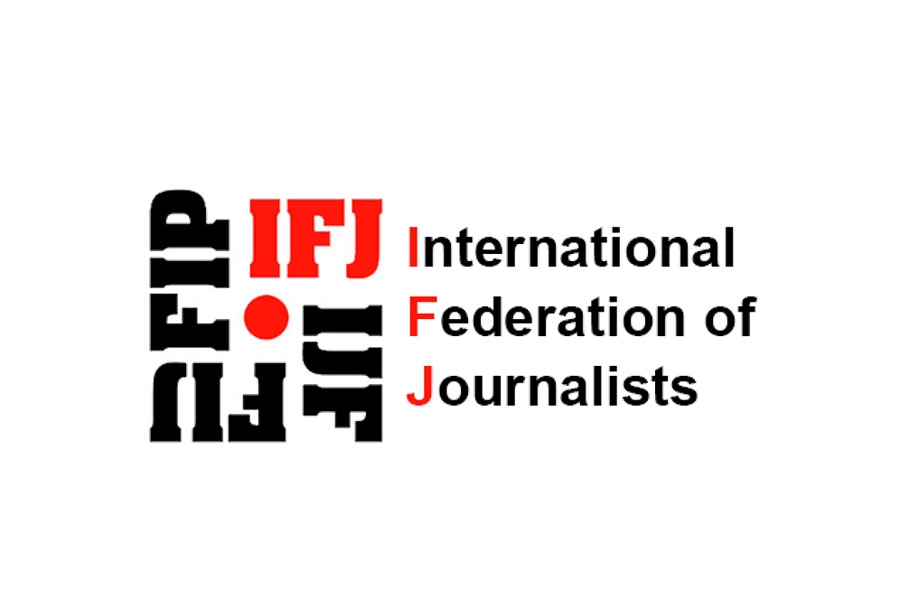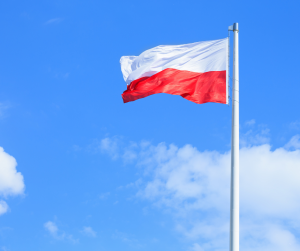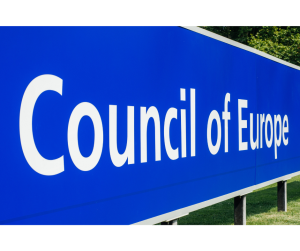In such dangerous conditions, the IFJ reminds journalists on the ground to take precautions, wear professional safety equipment and not to travel without their media providing them with all the professional safety equipment needed to cover events. No story is worth the life of a journalist.
In the early hours of 7 October, Hamas launched an unprecedented attack in southern Israel. In response, Israel retaliated with airstrikes over the besieged Gaza Strip and formally declared war at Hamas. The IFJ is working closely with PJS to verify information in real time and document all killings. Check the list of journalists and media workers killed since the start of the war in Gaza.
Journalists and media workers
On 7 November, journalist Yahya Abu Munie, who worked for Al Aqsa radio, was killed in an airstrike in Gaza City. PJS and Al Jazeera reported.
On 7 November, PJS and WAFA confirmed the death of journalist Mohammad Abu Hasira, a correspondent for Palestine News and Information Agency (WAFA), who was killed in an Israeli bombing near the fishermen’s port in Gaza City. According to WAFA, the airstrike took place overnight between Sunday and Monday, but the body of Abu Hasira was found in the rubble on 7 November.
On 6 November, journalist Mohammed Jaja, who worked for media development organisation Press House, was killed in an Israeli airstrike in Al-Nasr neighborhood in Gaza City. PJS and media reported his death.
On 2 November, journalist Mohammed Abu Hatab, a member of PJS and IFJ who worked as a correspondent for Palestine TV, was killed when an Israeli airstrike hit his home in Khan Yunis, southern Gaza Strip. PJS reported his death.
On 1 November, PJS confirmed the killing of journalist Majd Fadl Arandas, who worked for the news website Al-Jamahir, during a bombing near his house in the Nuseirat camp, in the Deir al-Balah Governorate.
On 31 October, Palestine TV confirmed the death of two media workers, Majd Kashkou and Imad Wahidi in an Israeli airstrike over Gaza city.
On 30 October, PJS and WAFA news agency confirmed the death of Nazmi Al-Nadim, deputy director of finance and administration for Palestine TV. Al-Nadim was killed when an Israeli warplane bombed his house in Zeitun neighbourhood in Gaza city.
On 27 October, Yaser Abu Namous was killed during Israeli airstrike that hit his house in eastern Khan Yunis, in the southern Gaza Strip, PJS and WAFA news agency reported.
On 26 October, PJS and WAFA news agency confirmed the death of journalist Doaa Sharaf in a missile attack that struk her home in the Al-Zawaida neighborhood, central Gaza Strip.
On 25 October, journalist Jamal Al-Faqawi was killed when an Israeli bombardment hit his home in the city of Khan Yunis, southern Gaza Strip.
On 25 October, PJS confirmed the death of three journalists Saed Al-Halabi, who worked for Al-Aqsa TV, that was killed when his home in Jabalia, in the north of the Gaza Strip, was targeted. Ahmed Abu Mahadi, who worked for Al-Aqsa TV, was killed in an Israeli airstrike in the Gaza Strip, PJS reported. On the same day, journalist Salema Mukhaimar was killed in an air strike in Rafah, southern Gaza Strip, PJS reported.
On 23 October, Palestinian news agency WAFA and PJS confirmed the death of journalist Mohammed Imad Labad, following an Israeli bombing close to his house in Sheikh Radwan neighbourhood in Gaza city.
On 22 October, Rushdi Sarraj, co-founder of Ain Media, photojournalist, film-maker and fixer for several international media, including Radio France, was killed in an Israeli air raid that hit his home, western Gaza city, PJS and media reported.
On 20 October, PJS confirmed the death of Muhammad Ali, a journalist with “Al-Shabab” radio in Gaza, who was killed by Israeli shelling of his home in the northern Gaza strip.
On 19 October, Khalil Abu Ghthera, cameraman for Al-Aqsa TV, was killed in the Al-Nasr neighborhood, north of Rafah.
On 18 October Al-Aqsa TV producer and director Samih Al-Nadi was killed in an aircraft bombing on the Gaza Strip.
On 17 October, PJS reported the killing of Al Aqsa TV journalist Isam Bahar, following the bombing of his house in Gaza city.
On the same day, Palestine TV journalist Mohammed Balousha was killed in his apartment due to bombings in Gaza city. PJS and media confirmed his death.
On 16 October, a bombardment hit the house of Al Aqsa TV journalist Abdul Hadi Habib in the Zeitun neighbourhood in Gaza city. PJS and media confirmed his death.
On 13 October, PJS confirmed the killing of journalist Hossam Mubarak, working for Al Aqsa radio, when an Israeli shelling hit his home in northern Gaza city.
On 12 October, producer of Voice of Prisoners Radio Ahmed Shehab was killed alongside with his family members when an Israeli airstrike struk his house in Jabalia refugee camp, in the northern Gaza Strip, PJS reported.
On 11 October, the PJS confirmed the death of journalist Mohammed Fayez Yousef Abu Matar, 28, following Israeli bombings on Rafah governorate, southern Gaza Strip. According to the state-run news agency WAFA, Abu Matar was a freelance photographer covering the ongoing military operations when he was killed.
On 10 October, the PJS said in a statement that three Palestinian journalists Said Al-Taweel, director of Al-Khamisa news agency; photojournalist Mohammed Sobboh and photographer Hisham Nawajhah for Khabar news agency in Gaza, were killed by an Israeli airstrike that hit a residential building near Gaza City’s fishing port. The Hamas-run government said that the three reporters were covering the evacuation of a residential building nearby, when the missile struck, AFP reported.
On 8 October, freelance journalist Asaad Shamlakh was killed with his family in an Israeli airstrike on his home in Sheikh Ejline neighborhood in Gaza city, PJS confirmed.
On 7 October, Palestinian photojournalist Mohammad Al-Salhi, working for news agency Fourth Authority was shot dead while covering the military operations at the border east of Palestinian refugee camp Al-Bureij, located in the central Gaza Strip, according to the state-run news agency WAFA.
Ibrahim Lafi from Ain Media news agency was killed while reporting near Beit Hanoun checkpoint, close to the separation fence with Israel, in the northern Gaza Strip, the media reported.
On the same day, journalist Muhammad Jarghoun, working for Smart Media, a media production company in Gaza, was killed while covering the fight between Hamas and the Israeli army, close to Rafah, in the southern Gaza Strip.
The IFJ is verifying information about other journalists who might have been killed since the beginning of the hostilities.
More information about journalists killed in Israel since 7 October here
More information about journalists killed in Lebanon since 7 October here
Journalists missing and injured
PJS warned that on 7 October contact was lost with local journalist Nidal Al-Wahidi from Al-Najah TV station and photographer Haitham Abdel Wahed from Ain Media agency. Both professionals were covering the fights close to the separation fence with Israel, near Beit Hanoun checkpoint. The next day, Al-Wahidi’s family informed the media that the journalist had been arrested by the Israeli army.
On 7 October, in the southern Gaza Strip, correspondent for Al-Ghad TV channel, Ibrahim Qanan, was injured in the leg by a missile strike targeted at Nasser Hospital in Khan Yunis city. In a similar incident, PJS reported that journalist Salah Abu Salah was wounded by a missile’s shrapnel at Abasan city.
In Gaza city, Israeli shelling injured journalist Saleh Al-Masry and his wife, and destroyed the houses of director of Zaman radio, Rami Al-Sharafi, and journalist Basil Khair Al-Din, working for TV station Al-Quds Today, reads PJS statement.
The moment an Israeli strike hit Palestine tower in Gaza on 7 October was caught on TV as Al Jazeera reporter Youmna Al-Sayed was conducting a live broadcast.
Throughout the weekend, Israeli retaliatory airstrikes completely or partially destroyed the headquarters of several media outlets, including the newsroom of Al-Ayyam newspaper, Gaza FM radio studio located in Palestine Tower, and headquarters of Shehab news agency, among others. The offices of Palestinian news agency Ma’an were severely damaged due to the flattening of Al-Watan Tower.
IFJ General Secretary Anthony Bellanger said: “Media workers in areas of armed conflict must be treated and protected as civilians and allowed to perform their work without interference. The IFJ calls on all combatants in this conflict to do their utmost to safeguard journalists and media professionals. There is intense and deeply concerned interest in this conflict all round the world, but people will only be able to understand what is really going on if journalists are allowed to do their work.”.
Download here the IFJ-PJS Safety advisory (in English) for journalists covering the war in Gaza.
For press inquiries regarding the situation of journalists and the media in the Gaza Strip, find contact details of PJS representatives here.




